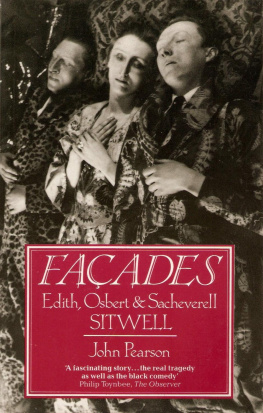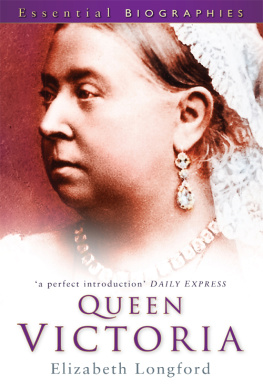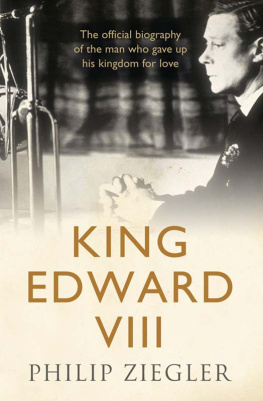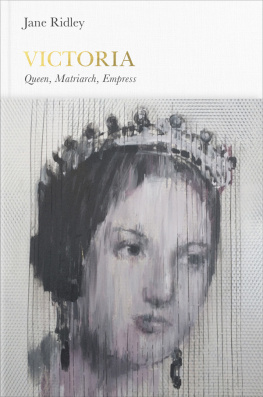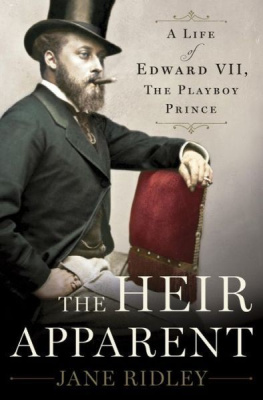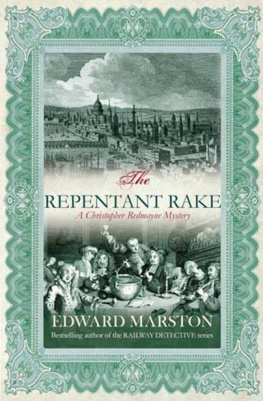Edward the Rake
John Pearson

Contents

1
That Dreadful Business at the Curragh
As a womanizer, Albert Edward, Prince of Wales, had the most terrible beginners luck. Had the almighty with godlike eye upon the future set out to read the royal heir a lesson on the dangers of the flesh, he could hardly have acted in a more thunderous, high Victorian style. The loss of the royal virginity was accompanied by such calamities, such wailing and reproach from those he loved, that it was as if the Lord were privately lamenting all of the trouble that the prince would bring the godly. It was a dramatic start for a lifetimes lechery.
It was doubly impressive for being unexpected. Certainly the prince had no idea what he was in for on the June morning in 1861 when he embarked for Ireland and all the regimental splendours of the Curragh Camp. He was just nineteen and had always longed to be a soldier. Now he was off at last on military manoeuvres. It had been planned with all the care that went with the arrangements for the royal family, and the princes visit was important for the Curragh, the mini-Aldershot some twenty miles from Dublin, and seat of the British military presence in the island. The camp was full. The grenadiers were stationed there that year, and on 26 August, at the culmination of God-knows-what excesses of unsullied military zeal, Victoria herself would come to take the salute at a full-scale sovereigns parade. For the queen this would be a family affair. Her adored consort at her side, she would be seeing their eldest son in his first public military role. He had been recently commissioned lieutenant-colonel in the grenadiers and would be marching with his men. For Victoria this would naturally be a source of pride and also of relief. Bertie, as he was called at home, had always been a problem, but he was clearly trying to be good. His dear fathers plans for him were working out.
It had been Albert who had realized his sons military ambitions and who had promised the commission in the Guards as a prize for good behaviour and success at lessons. And Bertie had evidently tried. He was no scholar: at times his family considered him half-witted. But he had recently stuck manfully to his fathers careful plans for finishing his education six months at Oxford, where he was chaperoned and guarded night and day, followed by an equalizing six months at Cambridge. Quite what his saintly father hoped for from this brisk exposure to the doubtful learning and more doubtful morals of mid-Victorian Oxbridge is not clear; but Albert had a touching faith in some sort of educational osmosis, very much in line with his scientific optimism, by which his son would naturally absorb the essential qualities of learning and high-mindedness to which he was exposed.
By summer, 1861, the princes university career was nearly over. He must have been relieved. For in these seats of learning he had been both pampered and restrained guarded by tutors, lectured by regius professors, sermonized by bishops, exhorted by long letters from his father, and constantly watched over by his male nanny, the indefatigable General Bruce, whose main task was to keep Bertie out of trouble. It must have all been curiously unreal for he was more or less cut off from other undergraduates, and lived like some Japanese emperor or god-king in their midst. At both places he had his own private residence: Albert the Good was realist enough to know what would have happened to his boy had he been given rooms in college.
At this time he was still very much an unknown quantity. People who met him generally liked him. He had a natural charm and was invariably polite. He was short, like his mother, having stopped growing at 5 ft 6 in, and already rather plump. (At Cambridge the prince consort warned him against over-eating, saying that it would spoil his figure, which it did.) But the general impression was of his innocence and of his eagerness for life. The Winterhalter portrait of a year before shows an unformed rather wistful face: the pale blue eyes stare sadly, the receding chin is not yet protected by its beard. He still had something of a stammer and it must have been hard not to have felt a little sorry for him even when he won his great reward and the royal tailor came and measured him for his splendid scarlet uniform, and he was brought his bearskin and his greatcoat and his gleaming boots, plus the gazetting as staff colonel with the grenadiers. His future as planned by Albert was already falling into place, and since he was both Prince of the Blood and Heir to the Throne, he had to have a rank to match his future role in life.
But it was not that simple with Bertie nothing ever was and even his appointment to the grenadiers had to fall between the two extremes of easy eminence and nannylike control which had been dogging him since adolescence. He could not possibly take his appointment like an ordinary young officer, mix with his comrades which he would have loved and calmly follow through his military career. But nor, on the other hand, could he be left to make the most of all the pomp and privilege to which his rank entitled him. This would not have fitted in with his fathers strenuous belief in self-improvement. Bertie must make a show of earning his exalted rank. He had to prove himself and work: above all he must suffer. It was to make sure that he did, that the Prince Consort engineered one of his famous plans.
It was all carefully worked out. A memorandum was composed; Albert was the sort of man who believed in memoranda, even when dealing with his children. Both Bertie and the commander-in-chief had to initial it. At the Curragh the prince-colonel would occupy the quarters of a brigadier, have six servants and, to learn something of the social side of life, he would give dinner parties in his quarters to selected senior officers at least twice a week.
But at the same time the prince had to earn his rank by meticulously learning, as Alberts memorandum stated, all the duties of every grade from ensign upwards. It was pure self-improvement, la Samuel Smiles, with a fortnight to suffice for Bertie to master every grade: by the time the queen arrived he would have learned enough to command a whole battalion and to manoeuvre a brigade in the field.
The schedule seems forbidding, but the prince was delighted with the plan and reached Ireland eager to start his longed-for military career. In Dublin the viceroy greeted him and crowds turned out to cheer him; at the Curragh life began in earnest. It was far tougher than he, or his father, had thought, and by mid-August Colonel Percy, his commanding officer was telling the heir to the throne, You are too imperfect in your drill, Sir. Your word of command is indistinct. I will not try to make the Duke of Cambridge think you more advanced than you are.
One admires the colonels frankness, but feels sorry for the prince. For on the 26th, when his fond parents came to hold the review of all their troops, Bertie had no brigade nor even the battalion he had hoped for and as he marched past his mother he was in the merest subalterns position where the shortcomings of his voice would hardly matter. It was a genuine humiliation, although Victoria did write that evening to her Uncle Leopold in Belgium saying that Bertie hadnt looked so very small in his uniform, and that he had acquitted himself as well as could be expected in the circumstances. This was slight consolation, but Berties brother officers had an idea of their own to divert him from his disappointment.
Next page




